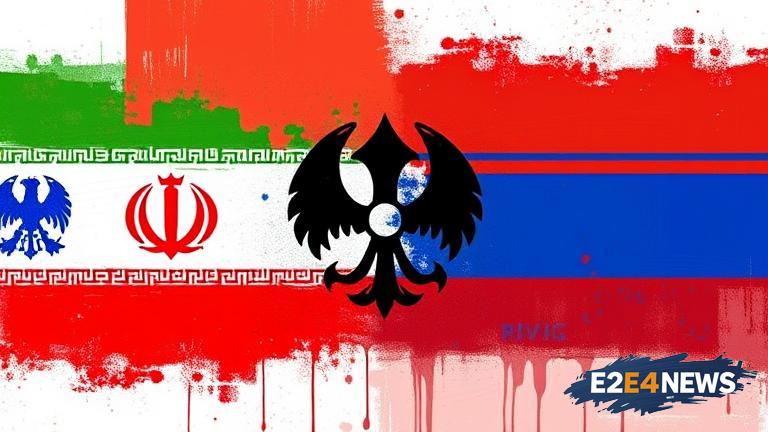Russia has expressed its worry about the potential threat of strikes on Iran’s nuclear facilities, as tensions between Iran and Western countries continue to escalate. The Russian government has stated that it is deeply concerned about the possibility of military action against Iran’s nuclear plants, which could have severe consequences for the region and the world at large. The concern comes amid reports of increased military activity in the region, with the US and its allies conducting joint military exercises and deploying additional troops to the area. Russia has long been a key player in the region, and has maintained close ties with Iran, with whom it has cooperated on a number of economic and military projects. The Russian government has called for a diplomatic solution to the crisis, urging all parties to engage in constructive dialogue and to avoid any actions that could escalate the situation. The US and its allies have accused Iran of pursuing a nuclear weapons program, which Iran has denied, stating that its nuclear activities are solely for peaceful purposes. The International Atomic Energy Agency (IAEA) has been monitoring Iran’s nuclear activities, and has reported that Iran has been complying with its obligations under the Joint Comprehensive Plan of Action (JCPOA). However, the US withdrew from the JCPOA in 2018, and has since reimposed sanctions on Iran, which has led to a significant escalation of tensions in the region. Russia has criticized the US for its decision to withdraw from the JCPOA, stating that it has undermined the international community’s efforts to resolve the crisis through diplomatic means. The Russian government has also expressed its concern about the potential consequences of a military strike on Iran’s nuclear facilities, which could lead to a significant release of radioactive materials and have devastating effects on the environment and human health. Furthermore, a military strike could also lead to a wider conflict in the region, drawing in other countries and causing significant instability and chaos. The Russian government has urged all parties to exercise restraint and to avoid any actions that could escalate the situation, and has called for a return to diplomatic efforts to resolve the crisis. The situation remains highly volatile, with tensions between Iran and Western countries showing no signs of easing. The international community is watching the situation closely, with many countries calling for a peaceful resolution to the crisis. The European Union has also expressed its concern about the potential consequences of a military strike, and has urged all parties to engage in constructive dialogue. The IAEA has continued to monitor Iran’s nuclear activities, and has reported that Iran has been complying with its obligations under the JCPOA. However, the situation remains highly uncertain, with many variables at play. The Russian government has stated that it will continue to work towards a diplomatic solution to the crisis, and has called on all parties to engage in constructive dialogue. The US and its allies have stated that they will continue to pursue a policy of maximum pressure on Iran, which has led to a significant escalation of tensions in the region. The situation remains highly complex, with many different factors at play. The international community is watching the situation closely, with many countries calling for a peaceful resolution to the crisis. The Russian government has expressed its hope that a diplomatic solution can be found, and has urged all parties to engage in constructive dialogue. The situation remains highly volatile, with tensions between Iran and Western countries showing no signs of easing. The potential consequences of a military strike on Iran’s nuclear facilities are severe, and could have devastating effects on the environment and human health. The international community must work together to find a peaceful resolution to the crisis, and to avoid any actions that could escalate the situation.
